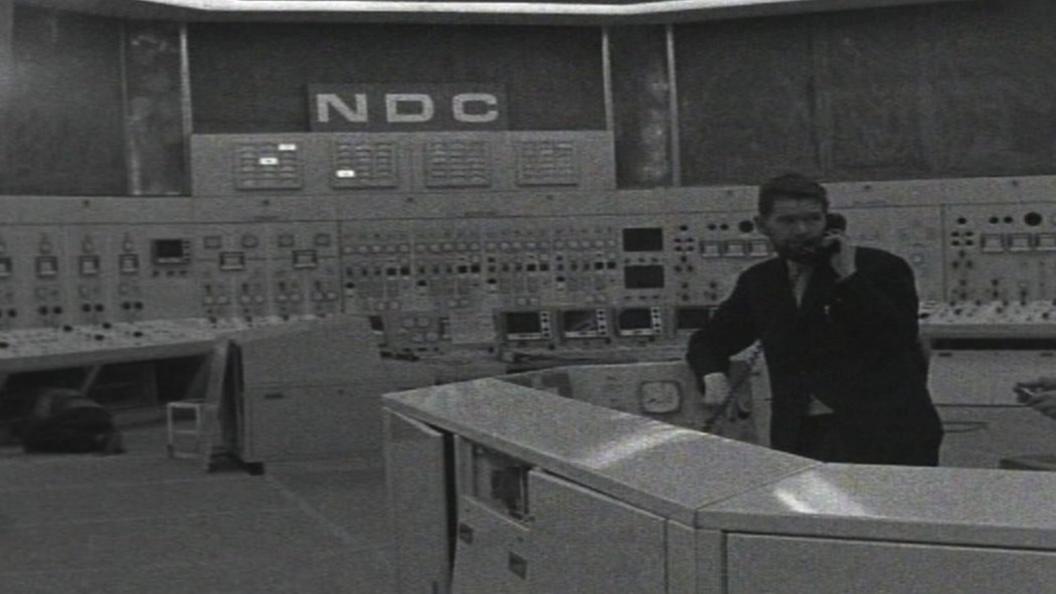Wylfa in pictures: Nuclear station over 50 years
- Published
The last working Magnox nuclear reactor in Britain is being switched off at Wylfa on Anglesey.
It has been generating electricity on the island since 1971, employing thousands of workers since work began on construction in 1963.
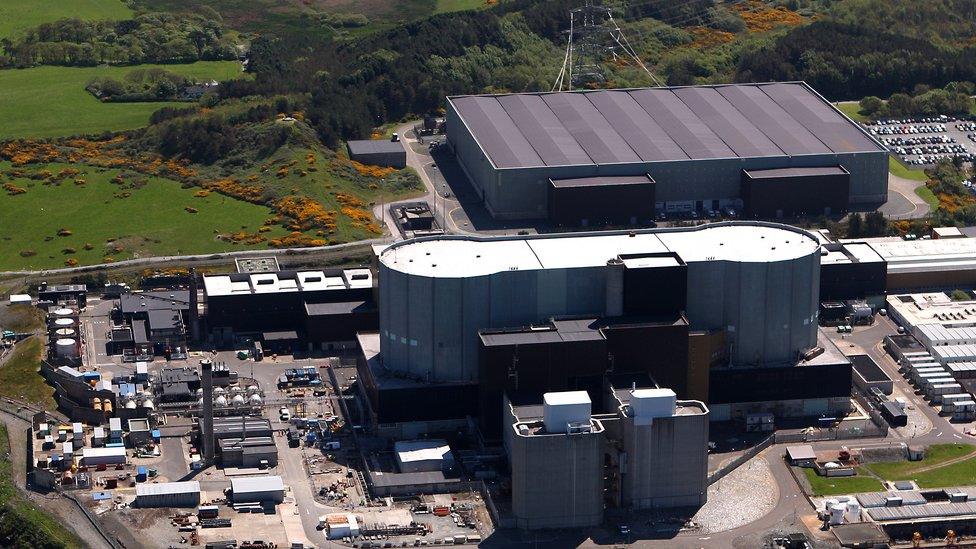
From the air - how Wylfa looks today - with the reactor building in the centre

How it looked under construction - with the first half of the reactor vessel ready

Here the giant reactor vessel is lifted into place
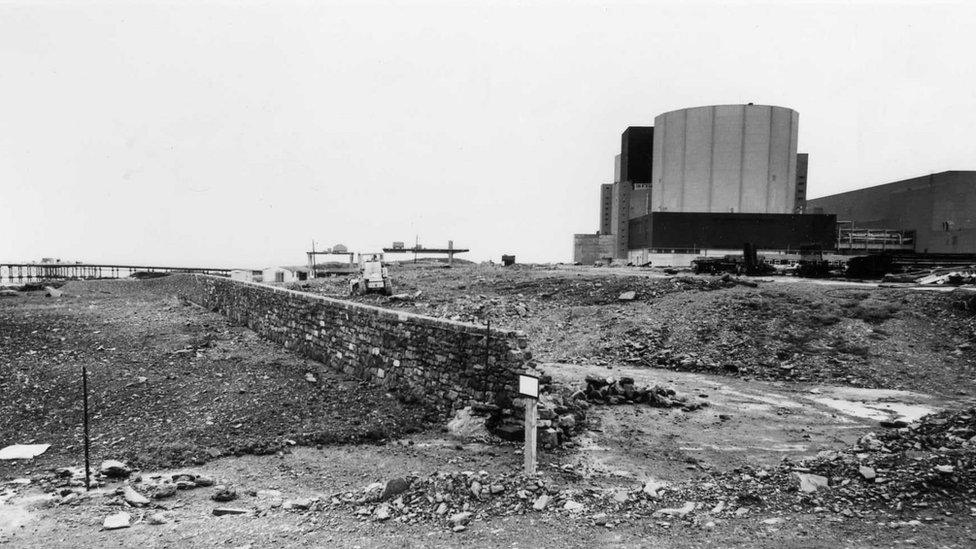
September 1970, and the reactor buildings are completed. After switch-off and decommissioning, these will stay in place for almost 100 years before the site is cleared in around 2105
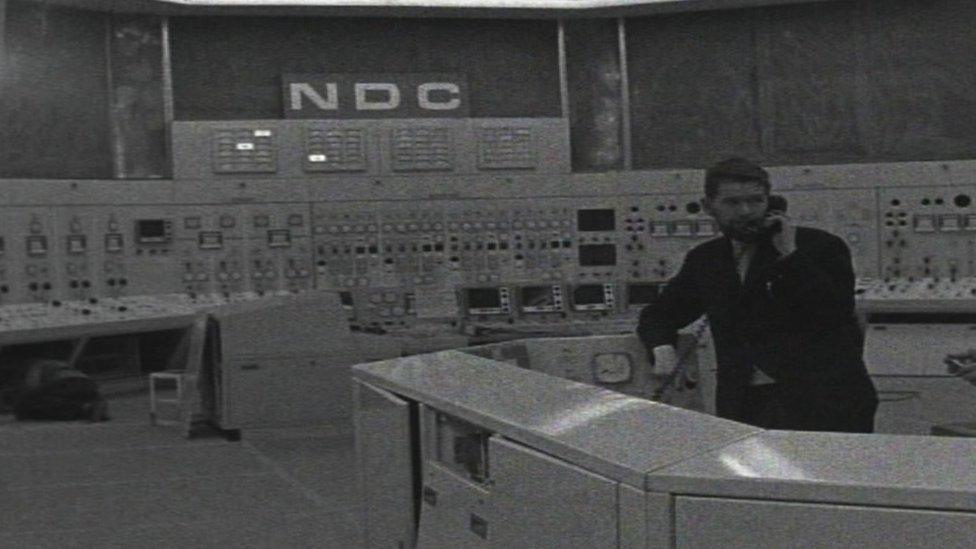
1971 - and Wylfa is connected to the national grid and starts generating electricity - from what was then, one of the most high-tech control rooms in the world
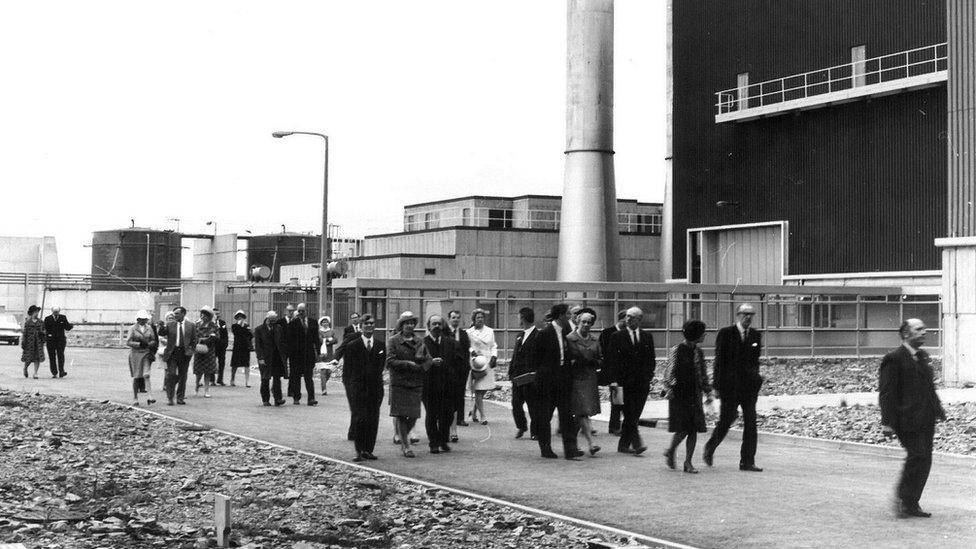
1972 - and dignitaries arrive for the official opening of the plant
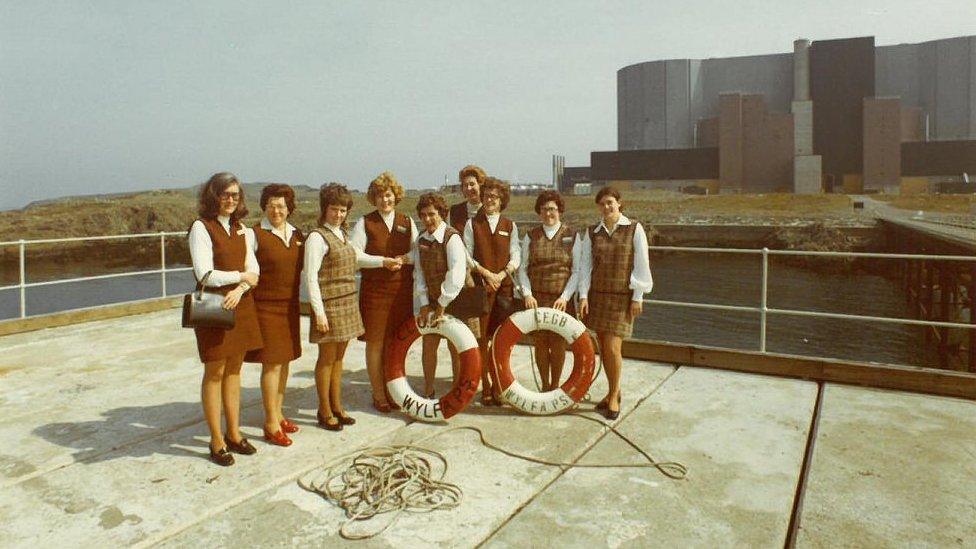
When Wylfa originally opened, visitors could take guided tours of the plant - which, of course, meant there needed to be guides
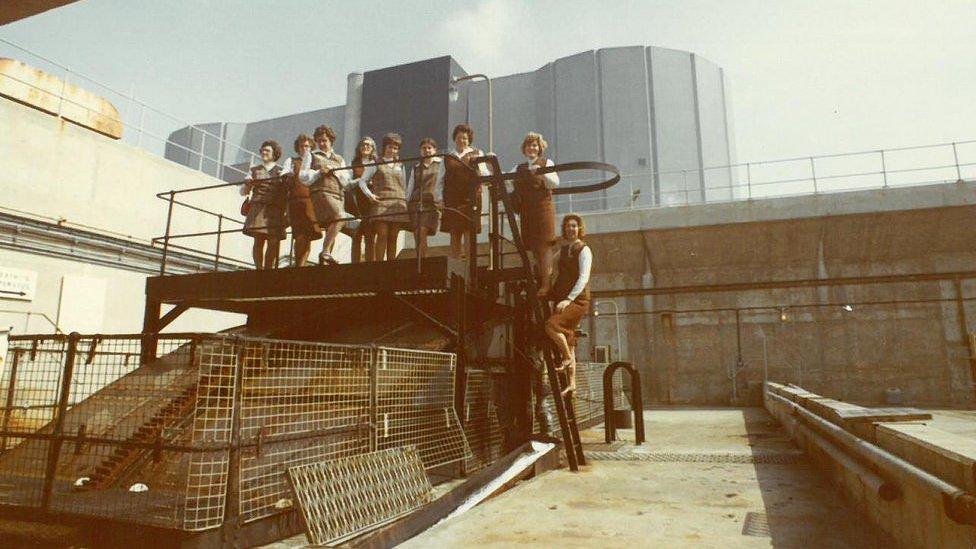
Tours ended amid heightened security across Britain's nuclear sites, and the Wylfa visitor centre finally closed entirely at the start of December

Fuel cells for the reactor are dropped though holes in what is known as the pile cap
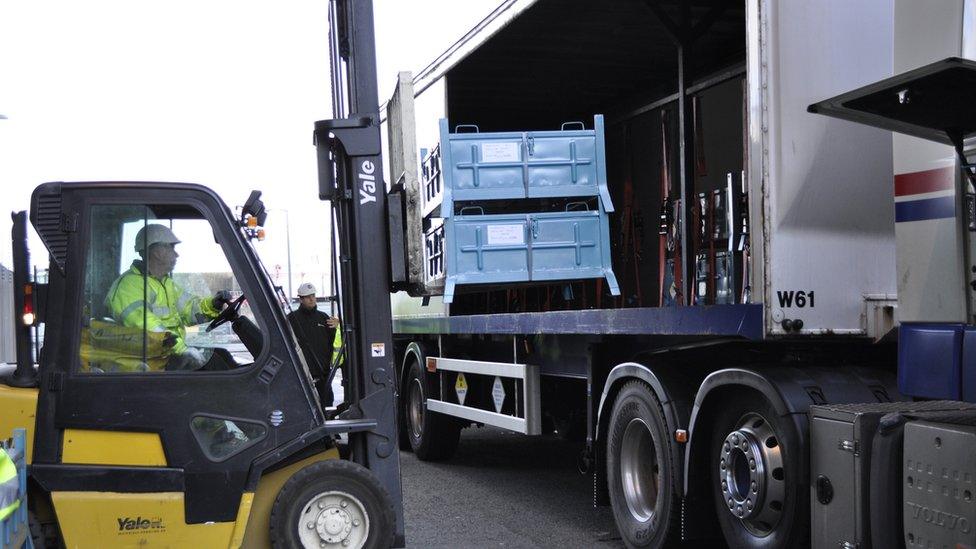
One of the main reasons for closing the plant is because the Magnox nuclear fuel used at Wylfa is no longer made. Magnox refers to the magnesium-aluminium alloy used to encase the fuel. This was the final delivery to Wylfa in 2011
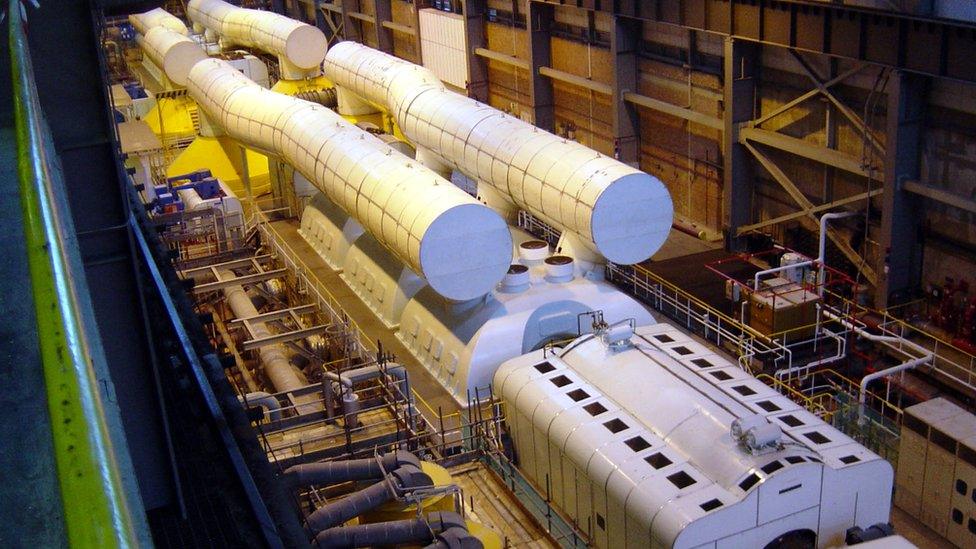
The turbine hall where super-heated steam spins the turbines to generate electricity. The hall itself stretches for a quarter of a mile
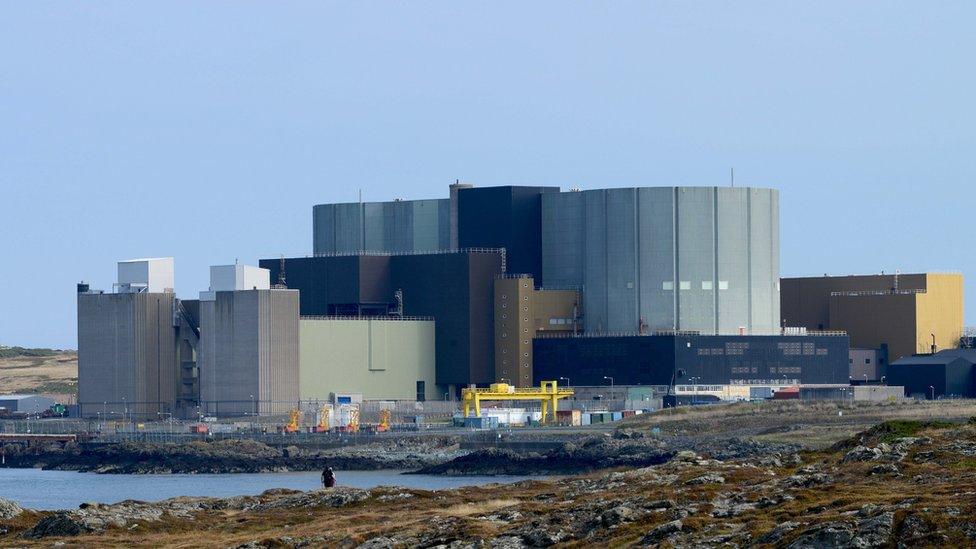
Wylfa - as it stands today - at the end of 44 years producing power - enough to supply every single home in Wales for every year of operation
- Published30 December 2015
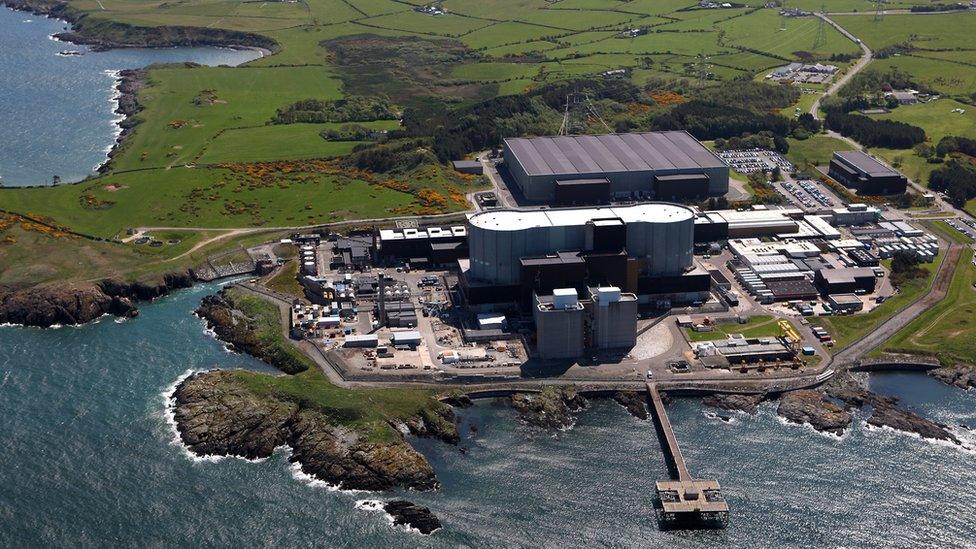
- Published30 December 2015
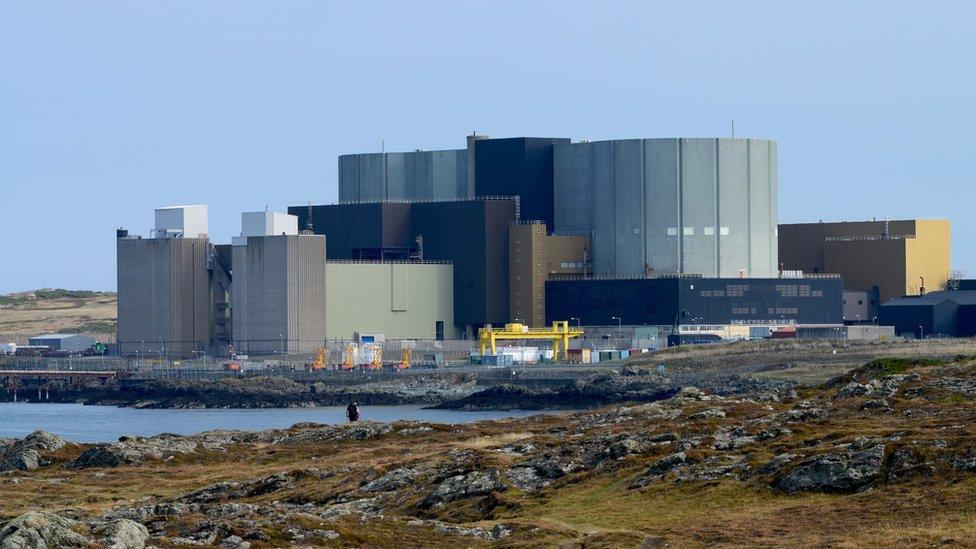
- Published2 December 2015
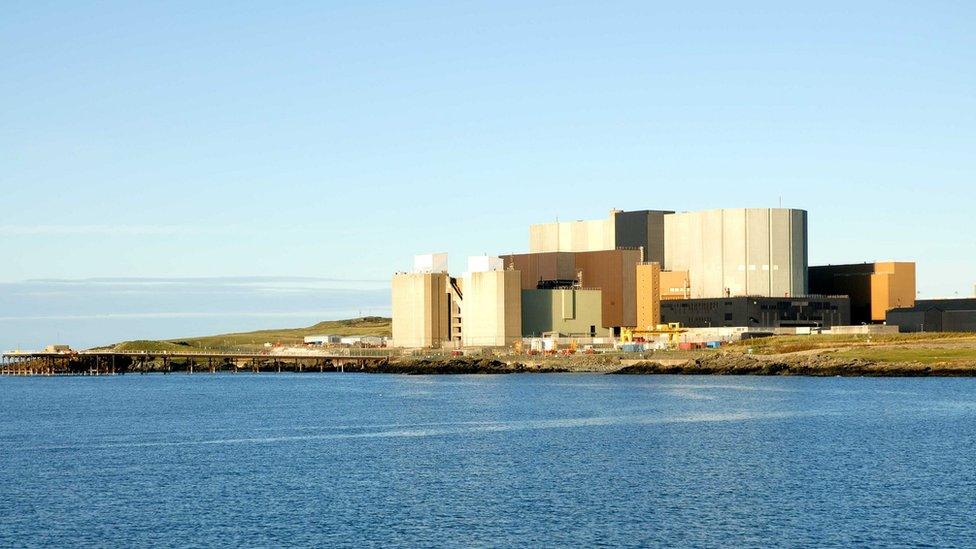
- Published7 April 2015
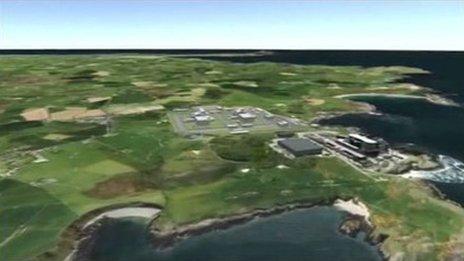
- Published2 December 2015
